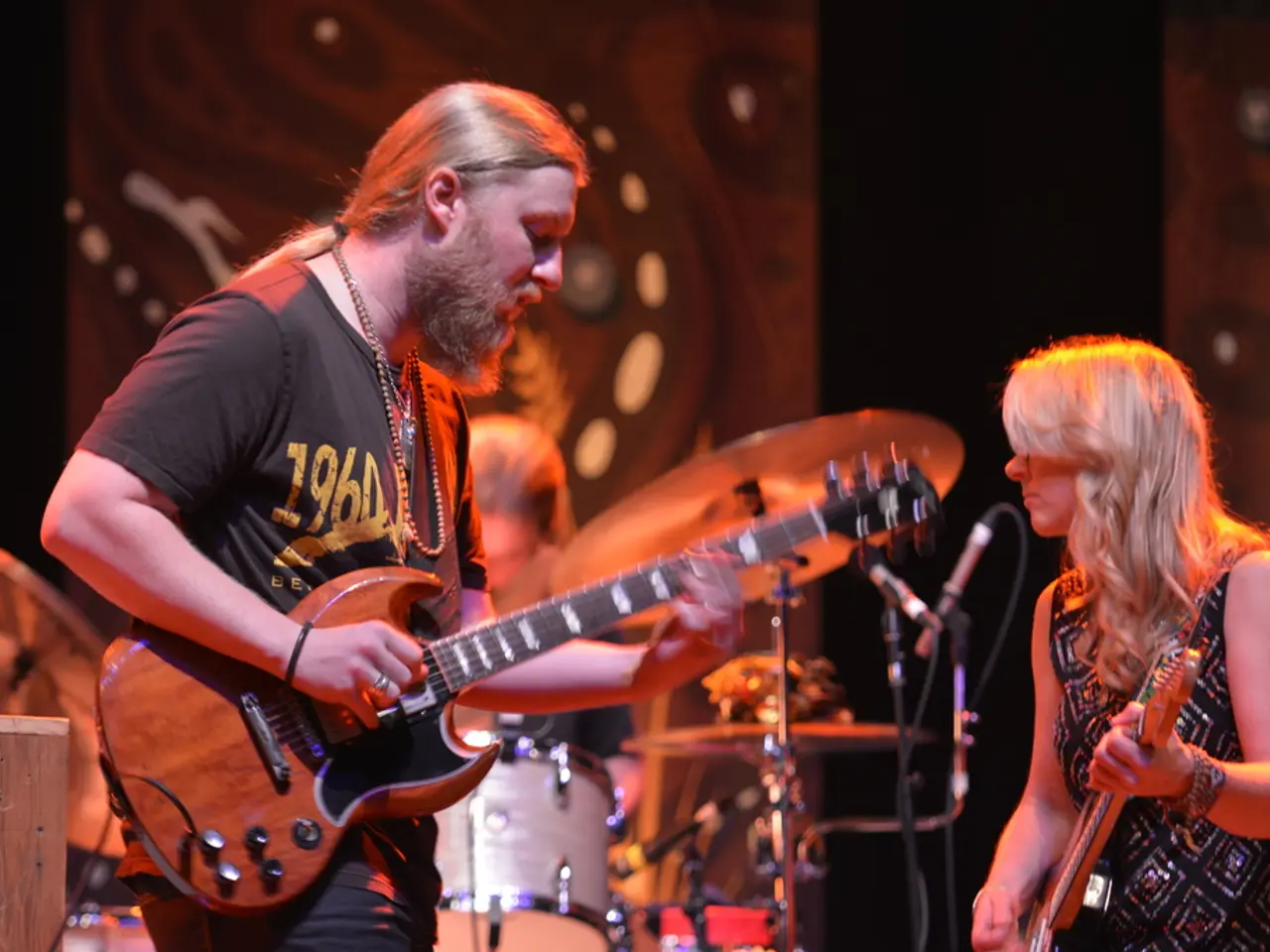Jazz's Impact on Contemporary Tunes
================================================
Jazz, a uniquely American art form born in the vibrant African-American communities of New Orleans in the late 19th and early 20th centuries, has left an indelible mark on the world of music. Its rich harmonic language, rhythmic complexity, and improvisational spirit have been key elements incorporated by artists across various genres.
This melodious offspring of African and European musical traditions has significantly influenced popular music genres such as rock, funk, hip-hop, pop, blues, Latin, rhythm and blues (R&B), and soul. Jazz's impact is seen in various ways, including rhythmic innovation, harmonic sophistication, and instrumental techniques.
One of the most notable fusion genres born from jazz is Jazz Fusion, which emerged strongly in the 1960s and 1970s. This genre blends jazz's improvisation and complex harmonies with the electric instruments and rhythms of rock and funk. Big band rock, popular during that era, incorporated jazz horn sections and progressive rock experimentation, exemplified by groups like Chicago and Blood, Sweat & Tears.
Hip-hop artists have drawn on jazz's rhythms and instrumental snippets, leading to a subgenre called jazz rap, which merges jazz samples with rap lyrics and beats. Similarly, jazz's influence on Latin music is apparent through Latin jazz, which combines Afro-Cuban and Brazilian rhythms with jazz harmonies and improvisation.
In pop, blues, and soul, jazz contributed foundational elements like syncopated rhythms and melodic phrasing. Jazz's use of syncopation, evolving from African and European traditions, brought rhythmic innovation to these genres. Jazz also shaped R&B by providing instrumental and vocal styles that emphasized groove and expressiveness.
Jazz's influence has led to the creation of new musical fusions that blur the boundaries between different genres, adding depth and complexity to contemporary music. This cross-pollination has opened up new possibilities for musical exploration, inspiring artists to push the boundaries of traditional jazz and create fresh, innovative sounds.
Moreover, jazz's impact extends beyond the realm of music creation. Its influence has led to the development of new pedagogical approaches focusing on improvisation and interaction in music education and theory. Additionally, jazz has inspired the creation of educational programs and institutions dedicated to the study of jazz.
Jazz's enduring legacy continues to shape the world of music, inspiring musicians to explore new musical territories and push the boundaries of musical expression. Contemporary artists across various musical genres, including hip-hop (Kendrick Lamar, Flying Lotus), pop (Norah Jones, John Mayer), and blues, have been influenced by jazz.
In conclusion, jazz, with its swing, blue notes, call and response vocals, polyrhythms, and improvisation, has enriched many genres by introducing syncopated rhythms, improvisation, complex harmonies, and instrumental blending, helping to create innovative subgenres and cross-genre fusions. Its impact continues to resonate, shaping the future of music and inspiring a new generation of musicians.
- The fusion of technology with education-and-self-development platforms has opened up numerous opportunities for individuals to learn about music production, enabling them to create unique blends of music, such as jazz, rock, pop, and hip-hop.
- The entertainment industry has been significantly enriched by the influence of jazz, prompting artists from various genres to experiment with its complex harmonies, improvisational spirit, and engaging rhythms in their music production.




